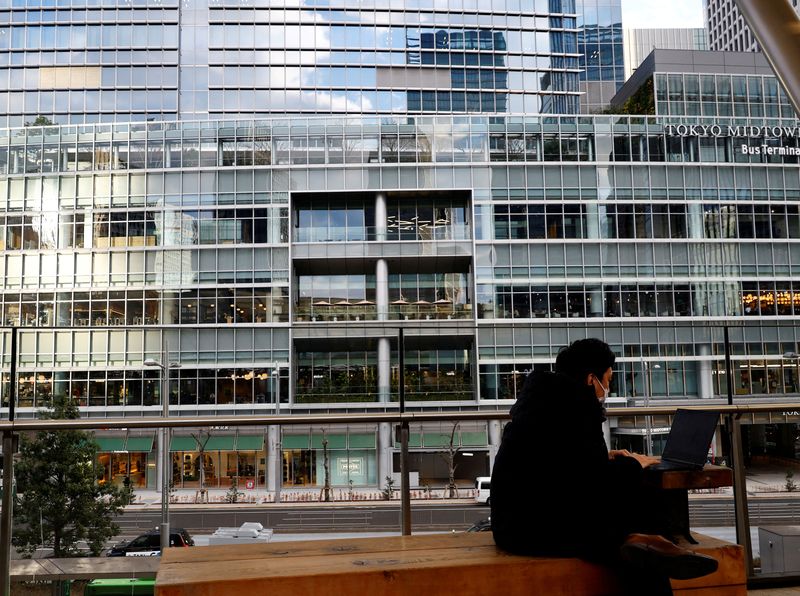Japan’s revised GDP likely rose in Q2 at same pace as initial estimate: Reuters poll
2024.09.06 01:11
By Satoshi Sugiyama
TOKYO (Reuters) – The Japanese economy likely expanded during the April-June quarter at roughly the same solid pace as initially predicted, a Reuters poll showed on Friday, although risks continue to cloud the outlook.
Analysts expect economic growth in Japan to maintain momentum, supported by positive trends in wages and personal and corporate spending, but risks remain from external factors such as a potential slowdown in the U.S. and Chinese economies.
Cabinet Office data out on Monday is expected to show the pace of gross domestic product (GDP) expanded 3.2% on an annualised basis in the second quarter, marginally better than a 3.1% growth initially reported.
The revised numbers would translate into a quarter-on-quarter expansion of 0.8%, unchanged from an initial reading.
The revised GDP data is expected to show that capital expenditure, a barometer of private demand, rose 1% in the second quarter, up slightly from a 0.9% increase in the initial estimate.
The revision reflects solid corporate spending on plant and equipment as shown in capital spending data announced on Monday, said Shinichiro Kobayashi, principal economist at Mitsubishi UFJ (NYSE:) Research & Consulting.
The preliminary data signalled that private consumption, which accounts for more than half of the Japanese economy, rose 1% in the second quarter, marking the first jump in five quarters.
“In the July-September period, personal consumption will continue to increase due to wage hikes and the effects from a tax cut,” Saisuke Sakai, senior economist at Mizuho Research and Technologies, said in an analyst report.

“Capital investment is also expected to increase on the back of sustained investment demand and other factors, with domestic demand expected to drive positive annual growth of about 1%.”
Separate data from the Bank of Japan is expected to be released on Sept. 12, and will likely show that in August the corporate goods price index, which measures prices of goods companies charge each other, remained flat month-on-month.








